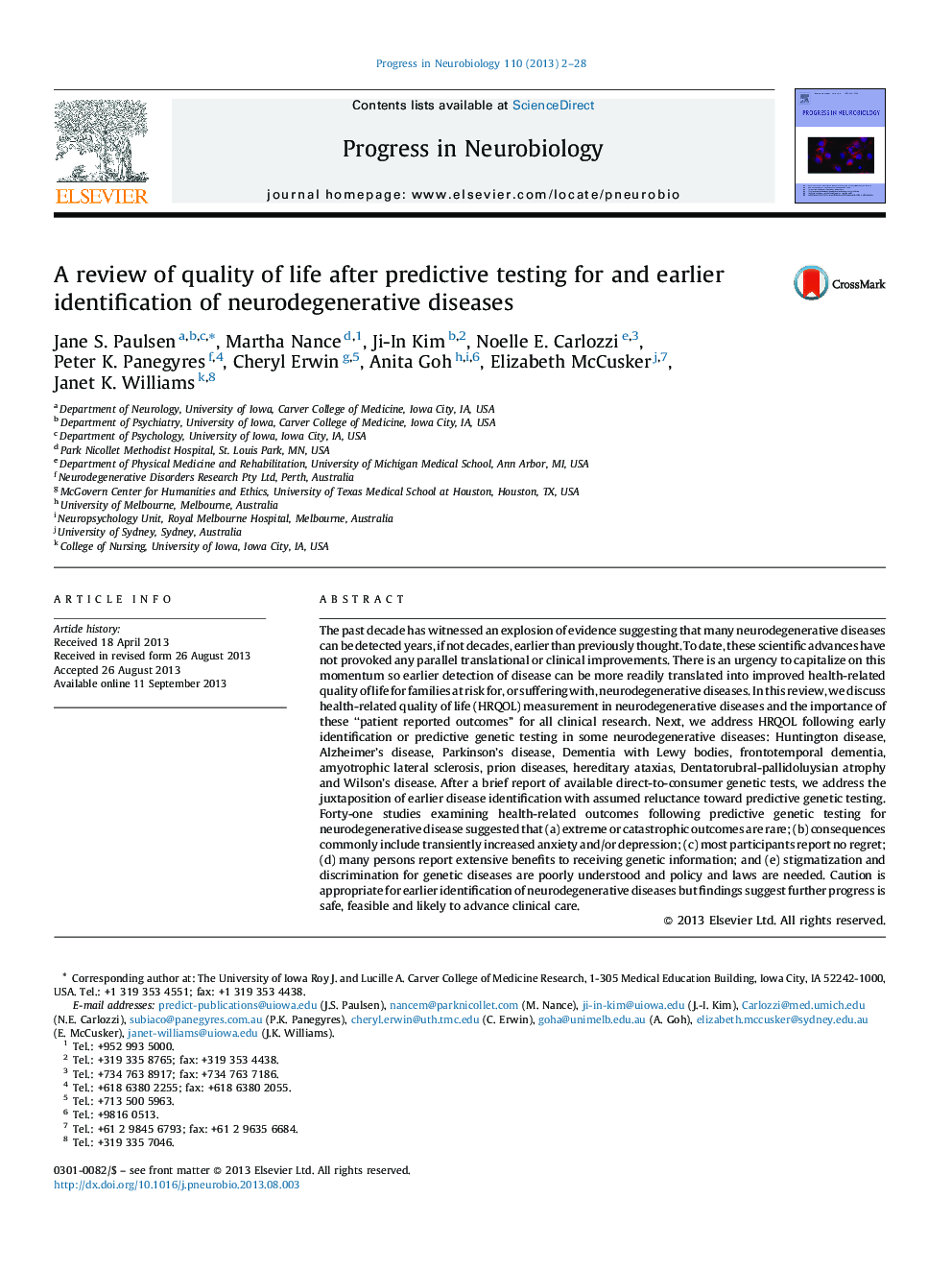| کد مقاله | کد نشریه | سال انتشار | مقاله انگلیسی | نسخه تمام متن |
|---|---|---|---|---|
| 4353325 | 1615399 | 2013 | 27 صفحه PDF | دانلود رایگان |

• WHO, NIH, FDA, EMEA concur regarding the need for quality of life outcomes in neurological disease.
• Literature suggests that predictive testing is feasible and safe: extreme detriments are rare and many report benefits.
• Genetic testing protocols require ongoing modification.
• Integration of genetics into diagnoses and treatments may be essential.
• Earlier diagnosis could expedite progress for neurodegenerative diseases.
The past decade has witnessed an explosion of evidence suggesting that many neurodegenerative diseases can be detected years, if not decades, earlier than previously thought. To date, these scientific advances have not provoked any parallel translational or clinical improvements. There is an urgency to capitalize on this momentum so earlier detection of disease can be more readily translated into improved health-related quality of life for families at risk for, or suffering with, neurodegenerative diseases. In this review, we discuss health-related quality of life (HRQOL) measurement in neurodegenerative diseases and the importance of these “patient reported outcomes” for all clinical research. Next, we address HRQOL following early identification or predictive genetic testing in some neurodegenerative diseases: Huntington disease, Alzheimer's disease, Parkinson's disease, Dementia with Lewy bodies, frontotemporal dementia, amyotrophic lateral sclerosis, prion diseases, hereditary ataxias, Dentatorubral-pallidoluysian atrophy and Wilson's disease. After a brief report of available direct-to-consumer genetic tests, we address the juxtaposition of earlier disease identification with assumed reluctance toward predictive genetic testing. Forty-one studies examining health-related outcomes following predictive genetic testing for neurodegenerative disease suggested that (a) extreme or catastrophic outcomes are rare; (b) consequences commonly include transiently increased anxiety and/or depression; (c) most participants report no regret; (d) many persons report extensive benefits to receiving genetic information; and (e) stigmatization and discrimination for genetic diseases are poorly understood and policy and laws are needed. Caution is appropriate for earlier identification of neurodegenerative diseases but findings suggest further progress is safe, feasible and likely to advance clinical care.
Journal: Progress in Neurobiology - Volume 110, November 2013, Pages 2–28